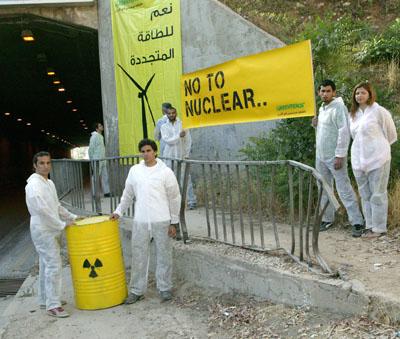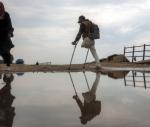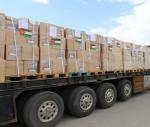AMMAN — The government will not decide to proceed with the national nuclear programme until after some 20 months from now, Prime Minister Abdullah Ensour said Thursday.
At a meeting with a number of ministers, nuclear experts and opponents of the project, Ensour said the government is open to all opinions regarding the plan, the Jordan News Agency, Petra, reported.
“We are now in the stage of preparing the decision, which means holding deliberations and conducting technical and economic studies. We will not enforce a decision on Jordanians unless they are in favour of it,” he noted.
The premier urged economic experts to judge the project on the basis of its feasibility and its expected contribution to the economy, stressing that the government realises that those opposing the scheme have safety concerns or doubt its economic viability.
At the meeting, attended by Jordan Atomic Energy Commission (JAEC) Chairman Khaled Toukan, the anti-nuclear energy activists presented their argument to Ensour, noting that the nuclear programme is not considered a Jordanian priority in light of the lack of resources and the insufficient quantities of uranium.
They claimed that the commission did not conduct environment and economic studies on the project and that world countries are abandoning nuclear energy projects in favour of other resources, according to Petra.
Thursday’s meeting was held at the request of the activists.
In October last year, JAEC announced plans to construct twin 1,000-megawatt reactors in the Qusayr Amra region east of Amman.
It listed the site’s distance from major urban centres and proximity to the Khirbet Samra Wastewater Treatment Plant among its advantages.
The commission selected Russian state-owned firm Rosatom as the preferred vendor to construct the reactors by 2021.
Activists and local residents claim that the reactors threaten the underground aquifers in Azraq, some 15 kilometres from the proposed site.
The reactors are projected to meet 40 per cent of the electricity demand of the Kingdom, which imports 97 per cent of its energy needs at a cost one-fifth of the gross domestic product.

















